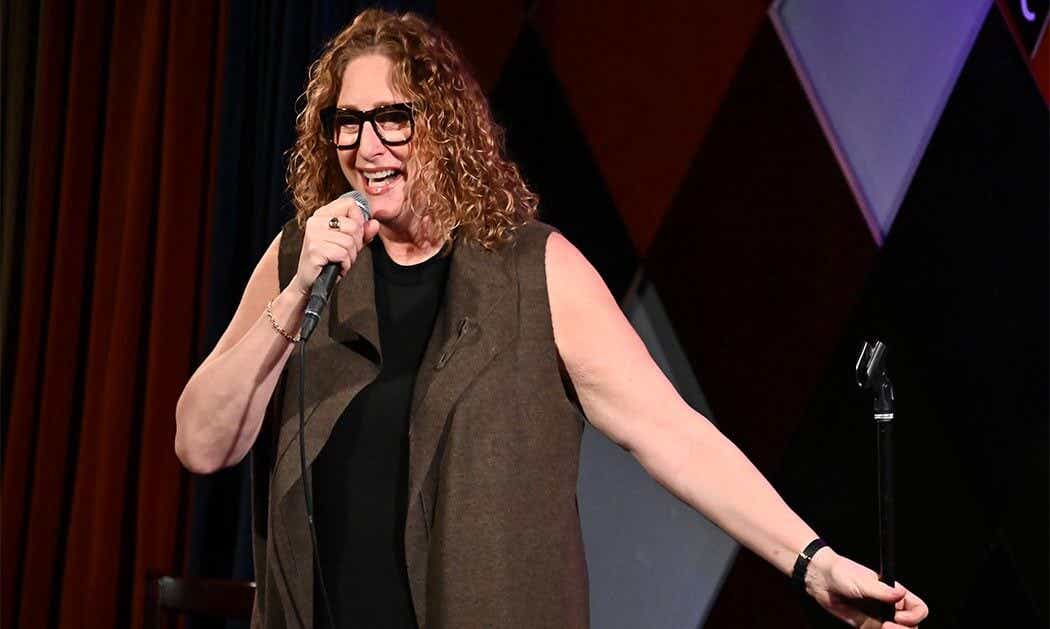Within the past several years, the idea that a person can be “canceled” — or culturally blocked from having a prominent public platform or career — has become a contentious topic of debate.
Veteran stand-up comedian Judy Gold pushed back against this notion of “cancel culture” saying it amounts to an assault on comedy and represents a fundamental attack against the integrity of the art.
“We’ve got to stop canceling comedians because a world without laughter really — I mean is there a reason to live if you can’t laugh?” Gold told Wake-Up Call.
Gold believes comedy is not only a coping mechanism — but it can also serve as a unifying force amid these particularly polarizing times. “A great joke makes you laugh and it makes you think,” she said.
But she maintained that social media oftentimes perpetuates cancel culture, noting that content shared on social media platforms like Twitter and Facebook don’t always include key contextual information. According to Gold, comedy on these platforms is all about intent, context, and nuance.
“Stop picking out words and saying, ‘You can’t say this, you can’t say that.’ Listen to the whole thought,” Gold said.
Known for her edgy wit, the two-time Emmy Award winner isn’t afraid to take on potentially touchy topics, including politics. She argues that nothing should be considered off-limits — unless of course, the crowd is laughing for the wrong reasons.
“I’m a lesbian — if I do a joke about lesbians and I think the audience is laughing because they’re homophobic, I will then call that out,” she explained. “If I do a Jewish joke and I think the audience is taking it the wrong way, I will then call that out.”
Gold tackles the issue of cancel culture head-on in her new book, Yes, I Can Say That: When They Come for the Comedians, We Are All in Trouble, which explores the notion of free speech from a comedian’s perspective.
Offering an overview of comedy history throughout the years, the book chronicles how comedians ranging from Richard Pryor to Kathy Griffin and Kevin Hart have been under fire for using provocative, often taboo subjects to make jokes. The book also highlights the impact of legendary comedian Joan Rivers, who Gold says “epitomized the whole idea of free speech.”
“She always said, ‘I say all the things you’re thinking, but are afraid to say,’ which is true,” Gold said. “And she was fearless and she was never more relevant than when she died.”
Gold bemoaned the treatment of Rivers throughout her life and even after her death, calling it “mindboggling” but not surprising. After her death in 2014, Rivers wasn’t recognized in the annual “In Memoriam” montage at the 2015 Oscars. This exclusion garnered criticism with many believing that the late comedian had been unfairly snubbed.
“It was ridiculous, but her plight was so much that of a woman,” Gold said.
Gold, who knew Rivers personally, said the late comedian was not only iconic but also very much supportive of other female comics in what is still today, a heavily male-dominated field.
But Gold said that the comedy world has started to change for the better following the #MeToo Movement. Like many other industries, the rise of #MeToo has made an impact on comedy. Among the more high-profile names to be called out by the movement is comedian Louis C.K., who was accused by multiple women of sexual misconduct in 2017. In addition to embarking on a comeback tour and performing at sold-out shows, the comedian has since released a comedy special, where he addressed the allegations.
Gold believes the #MeToo Movement has been largely positive for women in comedy, saying it has brought many women in the community together.
“Women have to support each other and make room for each other and open doors for one another,” she said.
This originally appeared on Medium.








